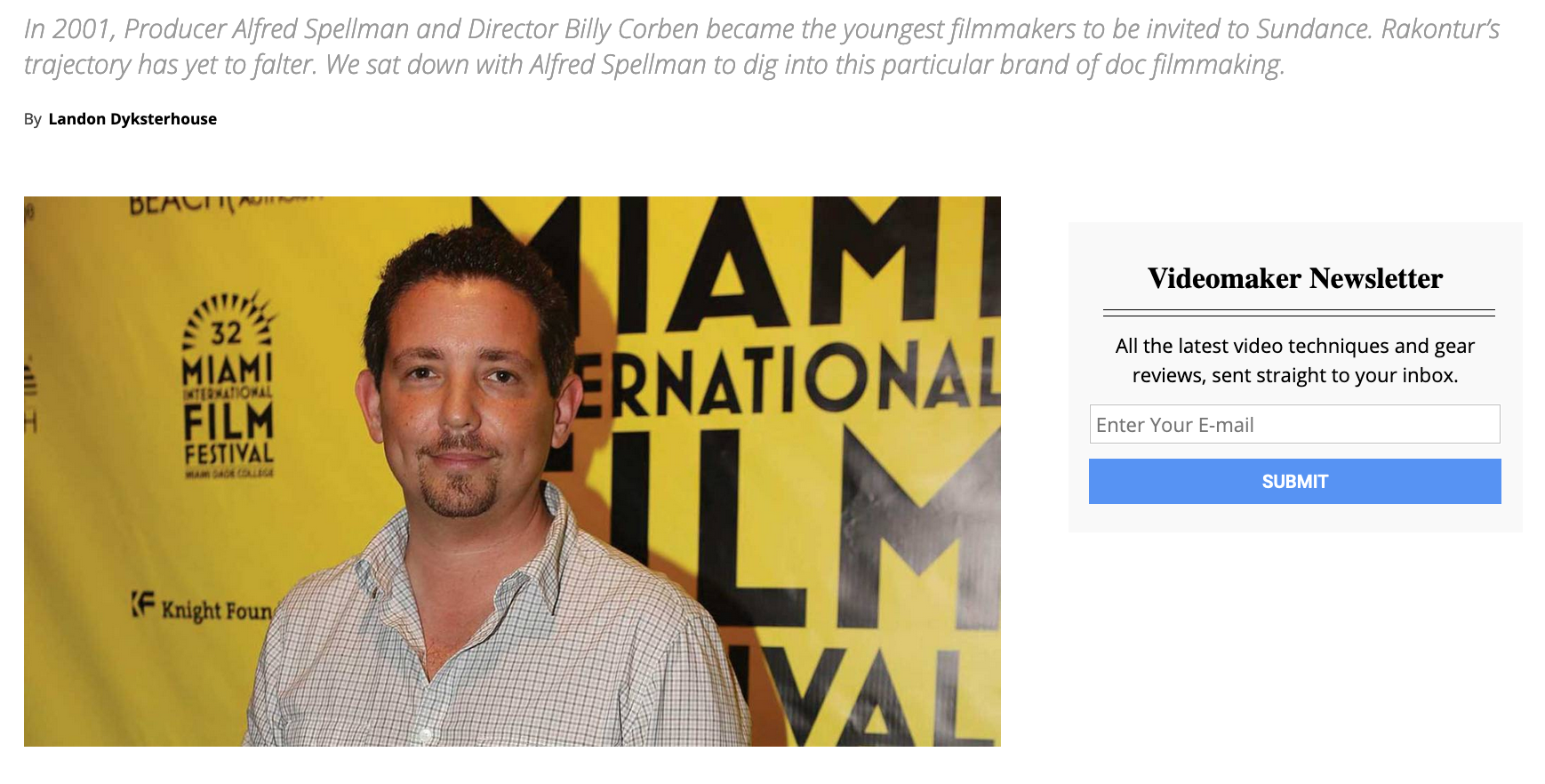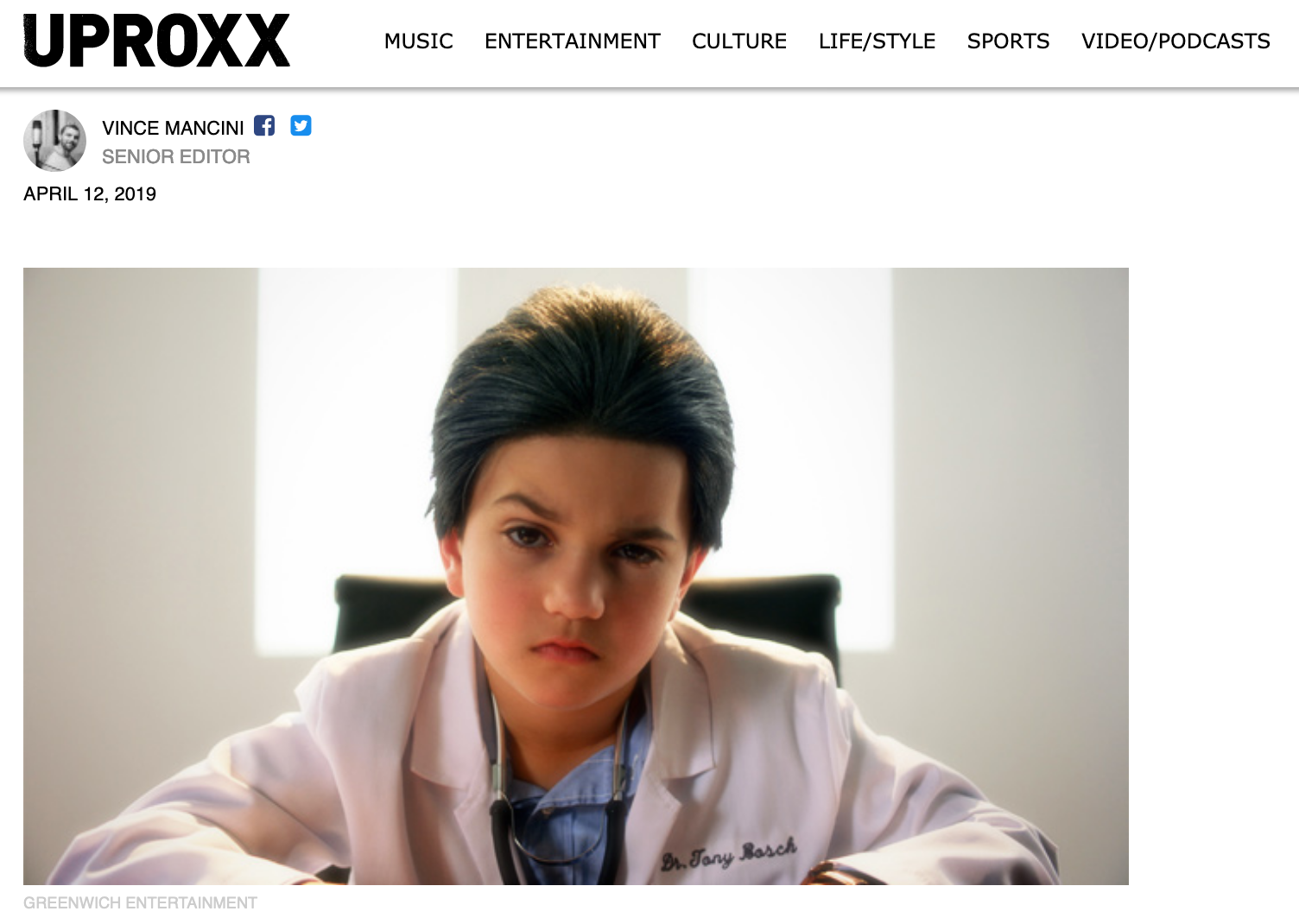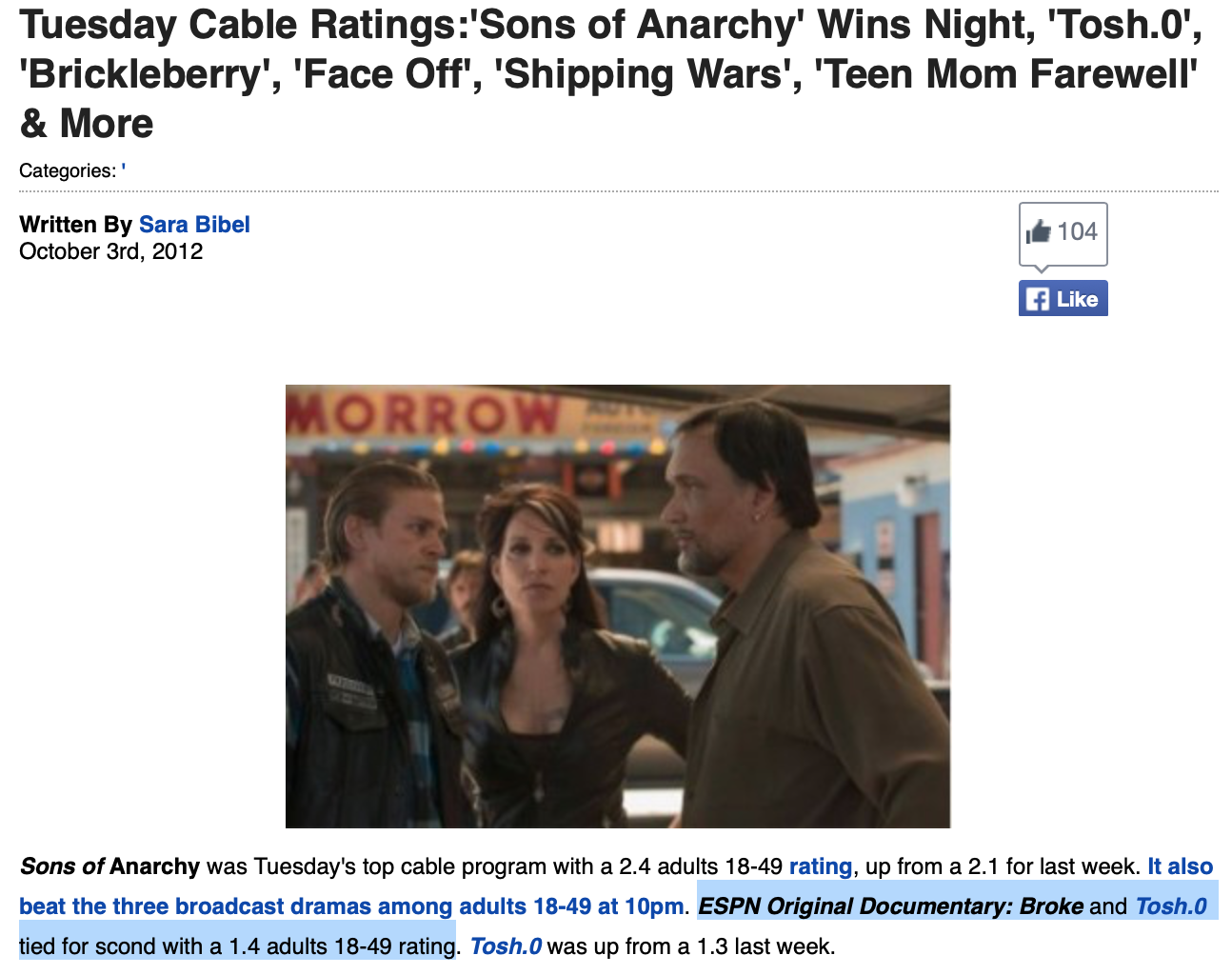“Cocaine Cowboys is one of the most interesting documentaries you'll ever see, because everything that happens in it sounds like fiction. But every bit of this story of how 1980s Miami became the cocaine smuggling, murder, and money capital of the United States is real. Director Billy Corben has been behind a lot of great documentaries (ESPN's 30 for 30s Broke and The U), but Cocaine Cowboys is in a class of its own.”
Alfred's Top Miami Picks in American Way →
The 15 Best Documentaries of 2019 (Polygon) →
14. SCREWBALL
Like Billy Corben’s earlier documentaries Cocaine Cowboys and The U, his latest film explores the peculiar culture of Miami, Florida, where athletes, entrepreneurs and drug dealers intermingle. Ostensibly the story of Major League Baseball’s Biogenesis scandal, in which multiple players were implicated for using performance-enhancing drugs, Screwball is really about sports stars and businessmen who cut corners, eager to fast-forward to the part of their lives where they’re rich, famous, and partying in beachfront mansions.
Top 10 Stage Productions of 2019 (Boca Mag) →
An appropriately maximalist, larger-than-life production about a larger-than-life sociopath, Miami New Drama’s ambitious and flavorful world premiere brought fresh theatricality to the familiar story of Miami’s drug war, and the killers, cops and families caught in its crosshairs. The coup de grace: Yancey Arias played the title character as chummy and scarily charming, so that his audience—us—were not so much his jurors as his co-conspirators.
Cocaine Cowboys Producer Alfred Spellman talks storytelling and trust in doc filmmaking (Videomaker) →
Sexual assault. Drug smuggling. Illegal steroid use. No subject matter is off-limits for Miami based documentary production company Rakontur. With an explosive documentary catalogue that includes titles like Cocaine Cowboys, The U, Raw Deal and their latest release Screwball, Rakontur producer Alfred Spellman is no stranger to high-stakes filmmaking.
Along with director Billy Corben, Spellman built a powerhouse documentary company. Rakontur specializes in bringing the “Florida F*ckery” to the big screen.
Billy Corben On The Literary Roots Of ‘Florida Man,’ His Favorite Florida Movies, And Florida’s Influence On Trump (UPROXX) →
When I got Billy Corben on the phone this week, I asked how he was doing by way of opening pleasantry. “Exhausted, thanks for asking,” Corben told me, an understandable response from anyone doing a press tour, as Corben is, to promote his new documentary, Screwball (which I recently described as “an insane masterpiece of Floridiana.”)
Then I asked my first real question, and Corben proceeded to give one of the most expansive, caffeinated interviews I’ve ever conducted. This is exhausted? Billy Corben’s tired makes my wired look like Steven Seagal after a couple quaaludes.
I soon found that Corben is easy to wind up, loves to tell stories, and is a great salesman, which probably helps explain what makes him such great documentarian — whose mostly Florida-based ouvre includes Cocaine Cowboys (1 and 2), Dawg Fight, and The U (1 and 2). Where some documentarians seem to have a standard style guide that they merely apply to different subjects (Ken Burns’ photo zooms come to mind), Corben’s subjects seem to inspire his formalistic approach.
"Screwball" Documents the Absurdity of A-Rod's Role in Biogenesis Through the Backdrop of Miami (Sports Illustrated) →
Screwball understands that the story it’s telling is a farce. (It’s not called “Screwball” for nothing.) The Biogenesis steroid scandal was one of the biggest in baseball history and took down one of the game’s greatest stars in Alex Rodriguez, but it reads like an Elmore Leonard novel populated exclusively with morons, or like a Coen brothers movie rewritten by the Farrelly brothers with a dash of Harmony Korine. So smartly, the documentary treats the sordid affair like the comedy it is—a saga with huge consequences, and yet one that started over a measly $4,000 debt. The result is an exhaustive yet fun retelling of the strange, stupid peak of MLB’s PED frenzy, and one well handled by Billy Corben, who produced and directed alongside his rakontur partner Alfred Spellman and who is no stranger to shining a light on Miami’s shadiest nonsense.
How the 'Cocaine Cowboys' director used the doping scandal that brought down Alex Rodriguez to create a comedic documentary about Miami gangsters (Business Insider) →
In the office of Rakontur, the South Florida-based production company of “Cocaine Cowboys” director Billy Corben and producer Alfred Spellman, there’s a spreadsheet that the duo have been building for most of their professional careers. It’s a unique wish list with the names of shady characters who became notorious in their hometown of Miami that they hope to one day make movies about.
Checked off that list already are the figureheads behind the cocaine blizzard that hit the beaches of Miami in the 1980s, which became the subject of their breakout documentary “Cocaine Cowboys.” There’s also the outlandish University of Miami football program during the 1980s, which they profiled in “The U” as part of ESPN’s “30 for 30” documentary series. And within the last year, they were surprised to check another off the list: Biogenesis owner Dr. Anthony Bosch, better known as the man who provided performance-enhancing drugs to numerous Major League Baseball players, including Manny Ramirez and Alex Rodriguez.
How A-Rod Explains Modern America (Wall Street Journal) →
I’m not sure the filmmakers behind the new documentary “Screwball” set out to make a baseball movie that explains America—but they did.
We tend to turn preachy and moralize when we talk about PEDs in sports, but “Screwball” is more like a Coen Brothers caper with Carl Hiaasen vibes. Biogenesis wasn’t some sophisticated conspiracy—it was a clown car pileup. Bosch’s clinic was an operation run by wannabes who couldn’t shoot straight, improbably entangled with some of the best baseball players in the world. Whatever could go wrong, eventually did, and that included Major League Baseball’s own clumsy investigation into the matter.
The Florida-born Corben and producer Alfred Spellman were behind “Cocaine Cowboys,” the 2006 documentary about the Miami drug trade in the ‘70s and ‘80s, and as in that film, “Screwball” has an undercurrent of love for the Sunshine State’s rich tradition of start-over hustlers and “gray market” economies. Mostly everybody in “Screwball” is on the make, trying to be someone bigger than they appear to be—some figuratively, others literally.
rakontur Day declared in City of Miami Beach
The 100 Best Movies of the 2000s: #27 Cocaine Cowboys (Complex) →
The 100 Best Movies of the 2000s
#27 Cocaine Cowboys: Scarface was cool, yeah, but Corben's documentary featuring some of Miami's biggest snowmen tells you what really went down in the '70s and '80s when the economy was shit but successful drug runners were copping whips and crashing them for fun. And there's no fake Cuban accents, either.
Billy and Alfred take Anthony Bourdain for stone crabs and beer on Parts Unknown: Miami →
Catching Cocaine Cowboys references on new tracks from Young Jeezy and Game
Pull up, jump out stuntin' like I was Baby
On my cocaine cowboy shit, like in the 80's
—Young Jeezy, R.I.P.
Karma catches up to all you head honchos
2 dome shots in that head, Griselda Blanco
—The Game, See No Evil
Broke is now the highest rated film in ESPN's 30 for 30 series
TV By The Numbers reports that Broke was seen by 2.53 million viewers and was the second-highest watched cable program of the night after Sons of Anarchy.
Broke earned a 1.92 HH rating, making it the highest rated film in ESPN's 30 for 30 series to date, besting Pony Excess and The U.
According to BlueFin Labs, it was also the most social show of the night:
First the Reuben, now the Corben (Miami New Times) →
Blue Collar's chef Danny Serfer has gained a cult following since he opened his small restaurant in January. Grab a seat and look around. Chances are, if you've been there more than once, you'll start to recognize the faces of regulars who come weekly -- sometimes even daily.
Serfer's biggest fan could perhaps be film director and producer Billy Corben, who drops in daily on his way to his office at rakontur.
It's Corben, you see, who has been charged with picking up lunch for the Rakontur crew. And more times than not, lunch is from Blue Collar. Corben is such a devotee of the place's food, that he recently had a sandwich named after him: twin brisket sandwiches on Portuguese muffins with Dijon mustard accompanied by potato latkes and a bowl of au jus for dipping.
BAFICI rakontur retrospective →
The Buenos Aires Festival Internacional de Cine Independiente (BAFICI) is screening a retrospective of our films at the festival April 11-22, 2012:
Peter Berg tells Sports Illustrated "The U was my favorite" 30 for 30 →
SI.com: Besides Kings Ransom, your documentary about Wayne Gretzky's trade to the L.A. Kings, what were your favorite movies in ESPN's 30 for 30 series?
Berg: The U was my favorite. It was daunting because I went first, and so I felt like we had to move very quickly. And Wayne is a friend of mine and that was a story I found interesting having lived in L.A. -- I had just moved to L.A. maybe two years prior to the Gretzky trade. That was a huge deal for me. Having Wayne in L.A. was an incredible, very exciting time. But what ESPN did with 30 for 30 was remarkable. I credit those guys. Bill Simmons is a good friend. He's the one that basically said, "You're doing this and you're going first." Looking back I wish I had a little more time maybe. But The U was my favorite.


















